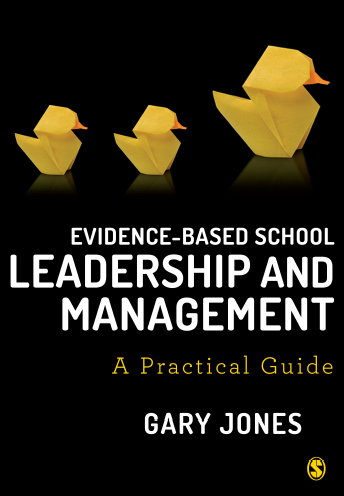A recent conference organised by the Institute for Effective Education - Improving outcomes for children: How do we know we’re succeeding? – covered a range of research and evaluation being carried out in schools. Everything from small-scale evaluations run by schools, where schools were testing innovations they had come up with, to large EEF trials, where schools were scaling up interventions with promise. It prompted me to think about the ethical framework within which these projects operate. In one session, when I asked what ethical framework and processes the school used before and during the conduct of a randomised controlled trial, the response was that ‘equipoise’ was assumed, parents gave consent, but there was no formal approval process to look at the ethical issues before carrying out a trial.
Now I could go into a long discussion about equipoise and informed consent But for want of a better phrase – for me equipoise is the research equivalent to a ‘get of jail card’. In other words, we don’t know what works, which gives us an excuse to do pretty much what we like. It’s useful for schools but does not provide sufficient ethical protection to pupils. As for informed consent – this is quite rightly something that needs to be taken into account – but the latest British Educational Research Association ethical guidelines for educational research BERA (2018) identify a far greater range of ethical issues which need to be addressed.
Now to be fair – a comment made at the end of a session does not provide incontrovertible evidence to support my claim that research active schools need to give more thought to the ethical component of their work. So with this in mind, it seem sensible look into the available research on school leaders views on research ethics. Fortunately, I came across some recent research by Bryan and Burstow (2017) who engaged with 25 school leaders to explore how the ways in research-active schools were aware or using ethical guidance in their research practices.
Bryan and Burstow undertook an initial online survey of 520 contacts – with 44 responses (8.5%) – and found some confirmation of their hypothesis that there was an issue around the ethical awareness of school researchers
· 35.9 % of respondents indicating that they always take time to consider ethical issues
· 30.8% of respondents indicating they havent had research ethics at the forefron of their planning
· 20.5% of respondents considering themselves as part of an ethically correct organisaitons – sufficiently informed and demonstrating good practice.
· 12.8% of respondents indicating that they always take full considerations of any ethical issues and use published guidelines.
Bryan and Burstow then went onto interview 25 senior leaders – drawn from primary and secondary schools who managed professional learning within their schools and had research projects taking place and subsequenly identified six themes
1. Ethics were not on the radar
2. Schools were seen as moral high grounds – which were not going to do projects which potentially harmed children.
3. Informed consent and right to withdraw – interestingly some respondents felt that children could not refuse to do something, with an expectation that everyone would take part.
4. A rejection of anonymity – that staff teachers would get back to specific pupils if they felt there was a need to.
5. Parental permission – a general expecation that parents would be ok with their children participating in reserch.
6. Concerns about workload and how research might contribute to overloading teachers.
Bryan and Burstow then go onto to make three observations. First, none of the respondents from 25 schools involved in the interviews had engaged in the BERA guidelines, and the appeared to have limited understanding of the importance of quality, rigour and trustwortiness in research. Second, there was a general dismissal of informed consents, of the right to withdraw or say no. Third, teachers saw little difference between research and what they did in classrooms on a day to day basis. Four, senior leaders in the schools had a rich understanding of how research within their schools was ethically situated – which went beyond a set of bureaucratic guidelines – with research practices aligned to pedagogic practices.
So where does this leave me and my claim that research active schools maybe acting unethically. On reflection,– research active schools are probably not acting unethically, that said, my sense is that they are not acting in ways which could be considered as best-practice (see Stutchbury, K. and Fox, A. 2009). As Bryan and Burstow note – there is a need for a strategic approach to the issue of research ethics within schools. The EER/IEE and Research Schools are well placed to do this – but I am not sure whether this is currently being done That said, this is not about creating a bureaucratic approval process, instead it’s about getting school leaders to explicitly think about the ethical issues of any research undertaken. This is particularly important, given what Zhao (2018) has to say about the potential negative side-effects of educational interventions.
And finally, given the publication of this year’s OfSTED Chief Inspector’s Report and the comments made about off-rolling of pupils, unfortunately we cannot make the assumption that all schools are moral-high grounds and and that school leaders provide acceptable levels of ethical leadership and are appropriate environments, within which school-led research should be taking place.
References
BERA (2018). Ethical Guidelines for Educational Research (Fourth Edition). London. British Educational Research Association
Bryan, H. and Burstow, B. (2017). Leaders’ Views on the Values of School-Based Research: Contemporary Themes and Issues. Professional Development in Education. 43. 5. 692-708.
Stutchbury, K. and Fox, A. (2009) Ethics in Educational Research: introducing a methodological tool for effective ethical analysis, Cambridge Journal of Education, 39 (4), 489-504
Zhao, Y. (2018). What Works May Hurt—Side Effects in Education. New York. Teachers College Press.
